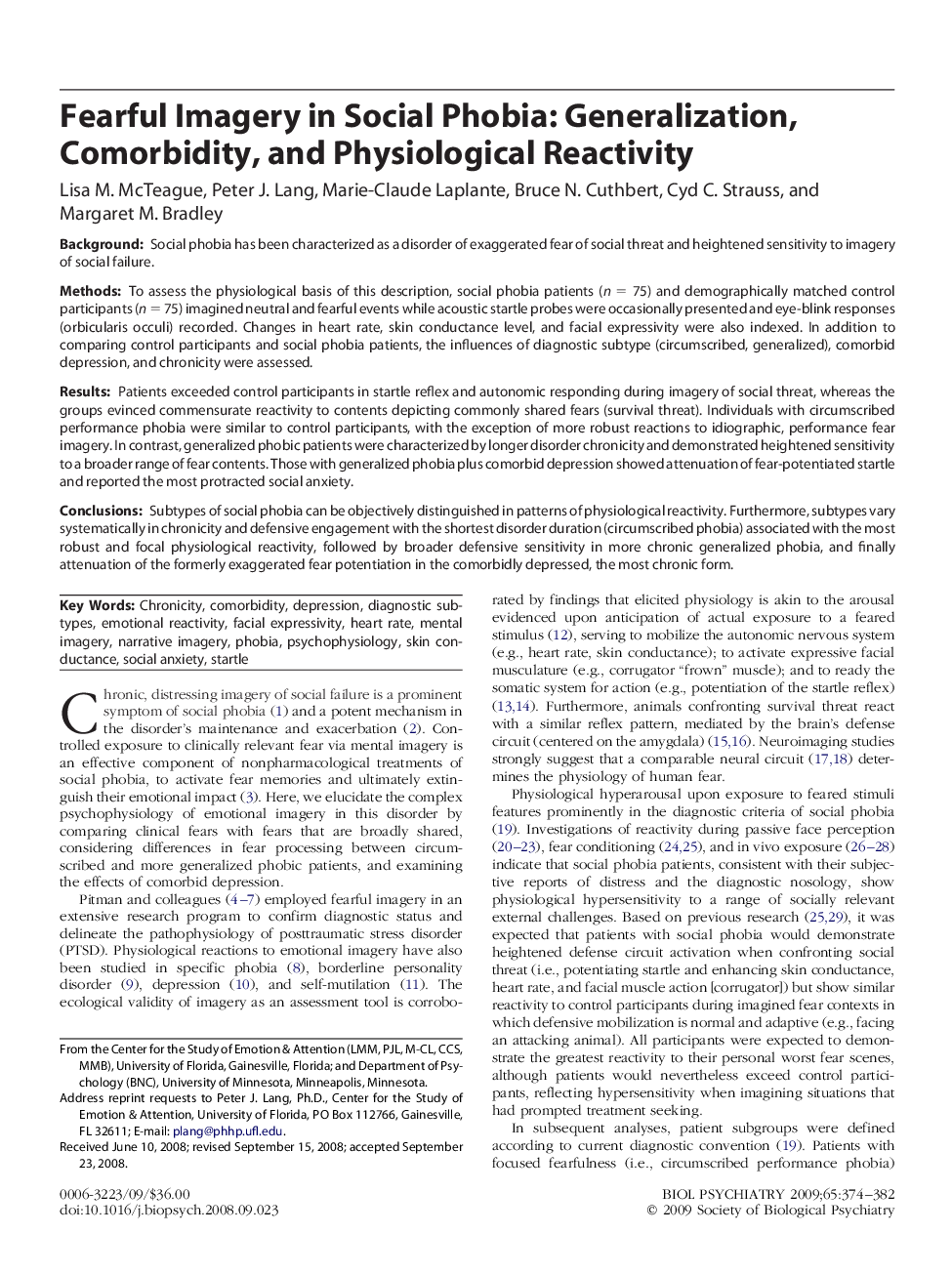| Article ID | Journal | Published Year | Pages | File Type |
|---|---|---|---|---|
| 4179904 | Biological Psychiatry | 2009 | 9 Pages |
BackgroundSocial phobia has been characterized as a disorder of exaggerated fear of social threat and heightened sensitivity to imagery of social failure.MethodsTo assess the physiological basis of this description, social phobia patients (n = 75) and demographically matched control participants (n = 75) imagined neutral and fearful events while acoustic startle probes were occasionally presented and eye-blink responses (orbicularis occuli) recorded. Changes in heart rate, skin conductance level, and facial expressivity were also indexed. In addition to comparing control participants and social phobia patients, the influences of diagnostic subtype (circumscribed, generalized), comorbid depression, and chronicity were assessed.ResultsPatients exceeded control participants in startle reflex and autonomic responding during imagery of social threat, whereas the groups evinced commensurate reactivity to contents depicting commonly shared fears (survival threat). Individuals with circumscribed performance phobia were similar to control participants, with the exception of more robust reactions to idiographic, performance fear imagery. In contrast, generalized phobic patients were characterized by longer disorder chronicity and demonstrated heightened sensitivity to a broader range of fear contents. Those with generalized phobia plus comorbid depression showed attenuation of fear-potentiated startle and reported the most protracted social anxiety.ConclusionsSubtypes of social phobia can be objectively distinguished in patterns of physiological reactivity. Furthermore, subtypes vary systematically in chronicity and defensive engagement with the shortest disorder duration (circumscribed phobia) associated with the most robust and focal physiological reactivity, followed by broader defensive sensitivity in more chronic generalized phobia, and finally attenuation of the formerly exaggerated fear potentiation in the comorbidly depressed, the most chronic form.
